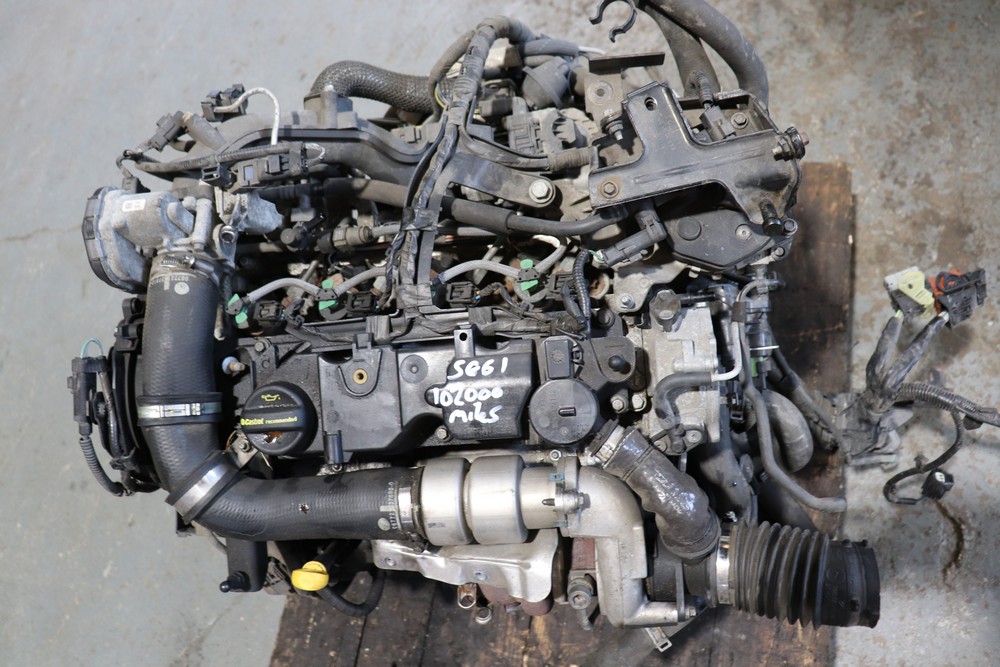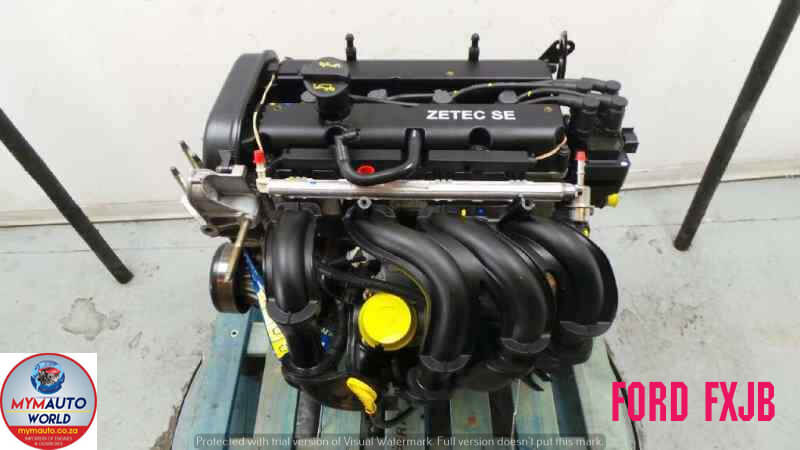What to Look for When Buying a Used Ford Fiesta Engine
What to Look for When Buying a Used Ford Fiesta Engine
Blog Article
Unlocking the Power of Engines: A Comprehensive Guide to Efficiency and Effectiveness
Comprehending the complex technicians of engines is important for both performance fanatics and everyday drivers. The answers might redefine our method to engine performance and performance in methods that are both enlightening and crucial.
Understanding Engine Fundamentals
What makes up the basic mechanics of an engine? At its core, an engine is a machine created to convert gas into mechanical power with a series of regulated explosions or burning procedures.
The crankshaft after that transforms this direct activity into rotational power, which ultimately powers the car. The camshaft regulates the opening and closing of the shutoffs, controling the consumption of air and gas and the expulsion of exhaust gases. Additionally, the engine depends on a carefully calibrated fuel-air mixture, ignition system, and cooling system to guarantee optimal performance and performance.
Understanding engine basics likewise involves acknowledging the relevance of engine cycles, such as the four-stroke cycle, which consists of intake, power, compression, and exhaust strokes. Each phase is essential in making sure the engine functions efficiently and successfully. Mastery of these essential technicians prepares for checking out extra complex engine dynamics and performance metrics, necessary for optimizing both power output and performance.
Trick Performance Metrics
Secret efficiency metrics are crucial for evaluating an engine's effectiveness and power output, supplying valuable insights for both consumers and suppliers. These metrics function as benchmarks for engine efficiency, enabling educated decisions in production, buying, and design.
One of the key metrics is horsepower, which evaluates the engine's capability to do job over time. Torque, determined in pound-feet, is one more critical statistics that suggests the engine's rotational force, straight influencing acceleration and towing capacity. Fuel effectiveness, generally gauged in miles per gallon (MPG) or liters per 100 kilometers (L/100km), assesses how efficiently the engine converts gas into activity, influencing ecological factors to consider and operational costs.
Furthermore, thermal efficiency steps exactly how well an engine converts gas energy right into beneficial job, revealing understandings into energy losses primarily via warm. Emission levels, including carbon dioxide and NOx, are also essential, mirroring the engine's ecological effect and conformity with governing requirements.

Tuning Techniques for Performance
Tuning methods play a significant role in boosting engine performance by enhancing efficiency metrics recognized in earlier conversations (ford fiesta engine). Different approaches exist to fine-tune an engine, each contributing to boosted gas economy and reduced emissions
One effective strategy is adjusting the air-fuel proportion, making certain the engine runs within the optimum burning regime. A leaner combination can improve fuel performance, but it needs to be balanced to avoid misfires or engine knock. Additionally, reprogramming the engine administration system can recalibrate criteria such as ignition timing, which click reference better boosts effectiveness while maintaining power output.
An additional crucial strategy entails changing the intake and exhaust systems. Upgrading to high-performance air filters and exhaust headers can lower back stress, assisting in far better air movement. This permits the engine to take a breath even more easily, resulting in boosted combustion performance.
Additionally, the application of sophisticated tuning tools, like dyno screening, provides precise information that allows targeted modifications. Frequently keeping track of these performance metrics guarantees that tuning efforts produce the desired effectiveness results. Collectively, these techniques not only bolster engine performance yet likewise add to lasting sustainability in engine procedures.
Maintenance for Optimum Efficiency
Regular engine upkeep is important for accomplishing optimum performance and long life. A well-maintained engine not just runs effectively however additionally minimizes the threat of expensive fixings and malfunctions. Trick elements requiring regular interest consist of oil, filters, belts, and stimulate plugs.
Altering the engine oil at advised periods is essential, as oil lubricates relocating parts and stops overheating. Replacing oil and air filters guarantees that impurities do not hinder engine feature. Ignoring these elements can result in lowered performance and possible engine damages.
Additionally, evaluating and changing used belts and pipes is vital to stop abrupt failings. Timing belts, in certain, must be changed according to the supplier's routine to avoid tragic engine damages.
Spark plugs need to also be checked and replaced as essential, because they play an important role in ignition and gas effectiveness.
Future Fads in Engine Modern Technology
Welcoming innovations in technology, the future of engine style is poised to revolutionize performance and efficiency across numerous applications. One of one of the most substantial trends is the shift towards electrification. Hybrid and fully electric powertrains are coming to be progressively mainstream, using lowered exhausts and boosted fuel effectiveness. This change is not simply a fad yet a requirement driven check it out by regulative pressures and consumer demand for lasting options.
Furthermore, technologies in materials scientific research are resulting in lighter, more powerful elements that boost engine performance while lowering power intake. Advanced production techniques, such as 3D printing, permit for the creation of complicated geometries that improve air flow and thermal monitoring, hence enhancing burning processes.
Furthermore, the assimilation of artificial intelligence and artificial intelligence is readied to transform engine diagnostics and performance adjusting. These modern technologies can analyze vast amounts of information in genuine time, making it possible for anticipating maintenance and tailored efficiency improvements.
Conclusion
In final thought, unlocking the power of engines requires an extensive understanding of their auto mechanics and performance metrics. Carrying out efficient tuning methods and adhering to regular maintenance practices significantly Resources enhance engine capabilities.
In addition, the engine depends on a very carefully calibrated fuel-air mix, ignition system, and cooling down system to make sure optimum efficiency and efficiency.
Comprehending engine fundamentals additionally includes identifying the relevance of engine cycles, such as the four-stroke cycle, which includes consumption, compression, exhaust, and power strokes. Proficiency of these essential technicians lays the groundwork for checking out a lot more intricate engine dynamics and efficiency metrics, important for maximizing both power output and efficiency.

Embracing developments in innovation, the future of engine style is poised to revolutionize performance and effectiveness across different applications.
Report this page